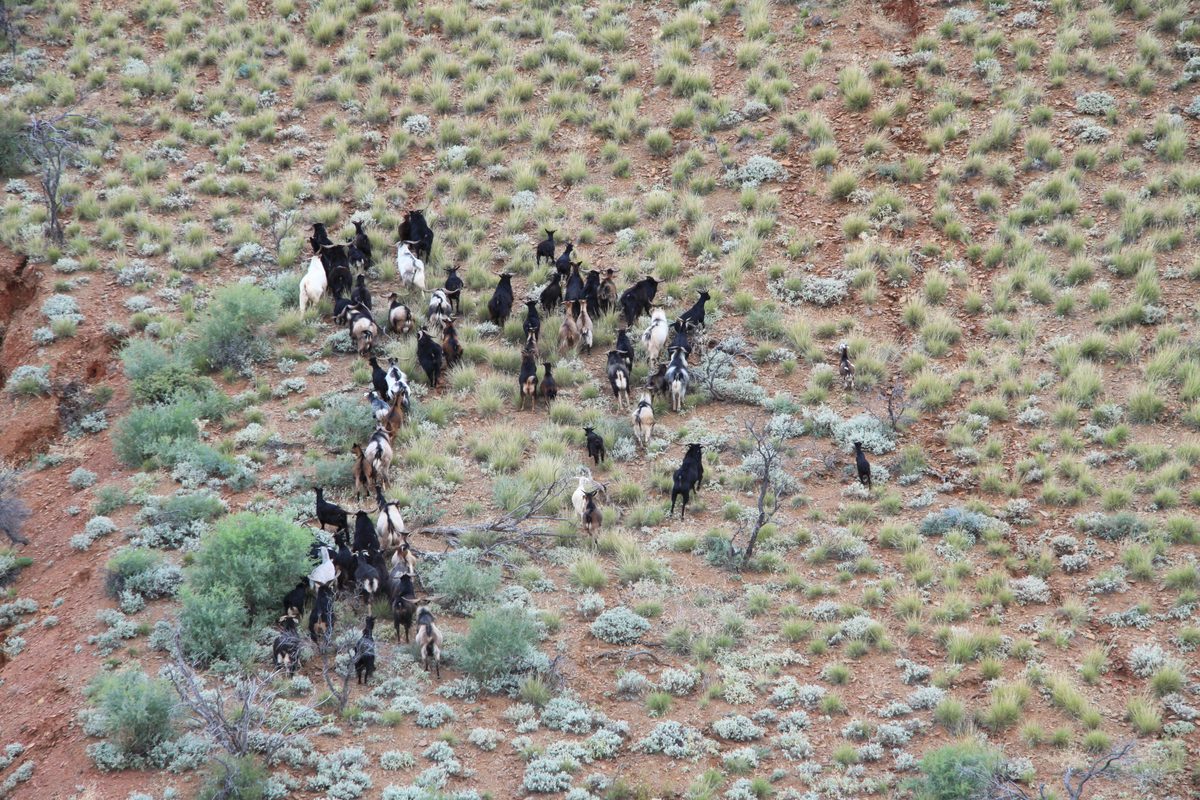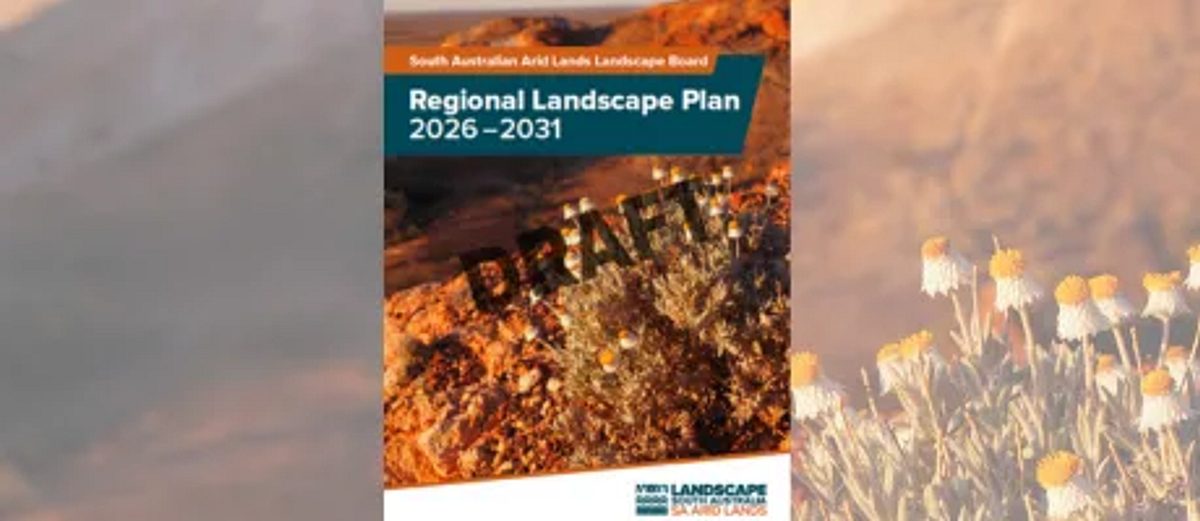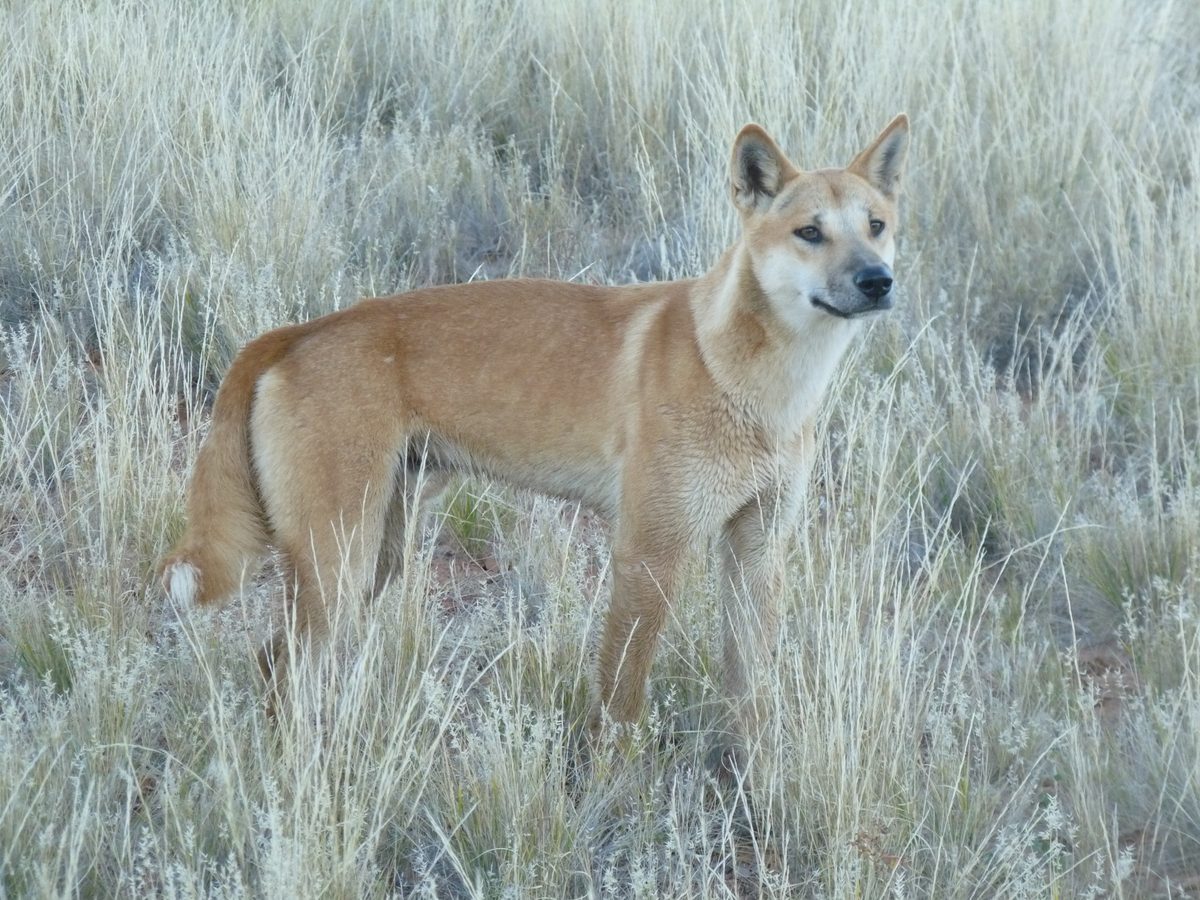SA Arid Lands NRM Board and Pastoral Board host Kangaroo Management forum
A kangaroo management forum at Yunta has brought together industry and government representatives to discuss strategies for managing high kangaroo numbers in the North Flinders and North East Pastoral districts.
Posted 20 November 2017.
The forum on 2 November was hosted by the SA Arid Lands NRM Board and the Pastoral Board of South Australia with the Department of Environment Water and Natural Resources. Livestock SA also attended the event at which broader industry issues were also discussed.
The forum attracted 33 people including policy makers and meat processors from across SA together with field processors and pastoralists from the North Flinders and North East Pastoral districts.
SAAL NRM Board Member Ross Sawers from the North East Pastoral district said the aim of the forum was to bring together stakeholders in the kangaroo industry to gain a level of understanding about each group’s concerns, needs and ideas.
“The management of kangaroo numbers is a complex issue. By bringing together players from across the industry, we can begin to understand some of the key concerns and begin lobbying for solutions or changes.”
From the day, Mr Sawers said the issues affecting land managers, meat and field processors relating to kangaroos included:
A decline in the number of field processors and challenges in attracting younger people into the industry
High numbers of kangaroos across the commercial harvest area
Challenges relating to the economic viability of field processors and the industry more broadly
Impacts on the environment from extremely high numbers of kangaroos, including the increase of total grazing pressure impacting on stocking rates for pastoralists
A need for a state industry peak body to represent the kangaroo industry
Pastoral Board deputy member Jenny Treloar, who has a property in the North East Pastoral District, said the forum highlighted issues impacting both the kangaroo industry and pastoralists.
“Kangaroos in large numbers have a considerable impact on the total grazing pressure, and the Pastoral Board is well aware of the effect that this can have on the pastoralists’ ongoing land management issues,” Ms Treloar said.
“The Pastoral Board has worked closely with the SAAL NRM Board in the past and will continue to do so to bring about, hopefully, some actions that may address the current issues facing some of the major stakeholders involved in the kangaroo industry.”
Livestock SA President Joe Keynes said, while the forum was the start of a conversation across all sectors of the industry, it needs to lead to action.
“It’s a great initiative to have all parts of the kangaroo industry represented, however it needs everyone to make a commitment to work together on solutions to ensure the industry continues and grazing pressure is reduced.”
Participants identified a number of actions needed to support the kangaroo industry:
A successful marketing strategy for kangaroo meat
The opening of new markets for meats and skins
Establishment of a peak body for the industry in South Australia
The Department of Environment, Water and Natural Resources will use information from the forum to work with landholders, field processors and meat processors to develop a number of pilot projects that demonstrate how the commercial kangaroo industry can assist in managing high kangaroo numbers within the commercial harvest zone.
The results of the forum will also be used to inform a state-wide approach to managing kangaroos with the forum also highlighting the need for key industry stakeholders to develop a peak body to represent and promote the industry to ensure its continued viability.
Mr Sawers said the SAAL NRM Board recognised that the issue of kangaroo management is not confined to the North East Pastoral and North Flinders districts. He said the Board would share information from the forum with the four other district NRM groups in the SAAL region, as well as key partners who the Board recommends come together to begin addressing the issues.
BACKGROUND
Kangaroo numbers in South Australia are currently high due to a number of high rainfall years, with the 2016 population estimated at just over 4.7 million.
The SAAL NRM and Pastoral Boards are aware that farmers and graziers are concerned about grazing pressure impacts due to high kangaroo densities.
In recent years, a decrease in national and international demand for kangaroo products has reduced profitability for the industry, resulting in a decline in the proportion of the annual harvest quota being taken.
In 2016, only 15% of the State’s commercial kangaroo quota available was utilised by the industry. The quota was set at 664,000 with 98,681 kangaroos harvested.
South Australia has four kangaroo meat processors and 49 field processors. The number of field processors has been in steady decline since 2007, when there were 83 field processors.
The majority of field processors are aged over 50 (43%), with just 12% being 30 years or younger.
DEWNR’s role is to ensure that the commercial harvest of kangaroos is sustainable and does not pose a threat to the long-term survival of the species.
DEWNR regulates the industry through the use of permits for industry operators, tags and reporting requirements of permit holders.


